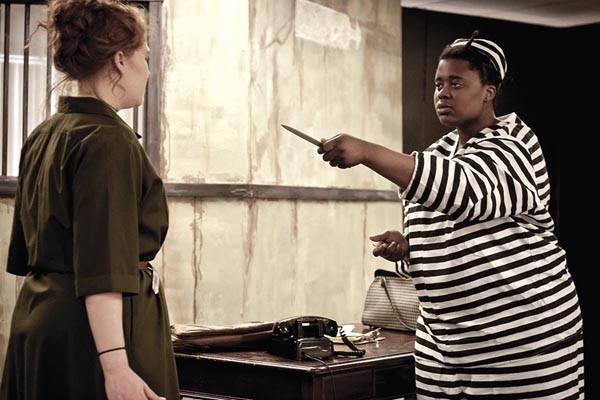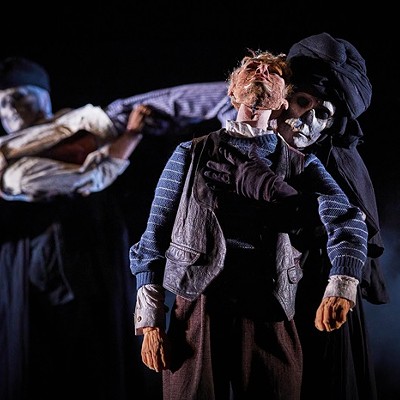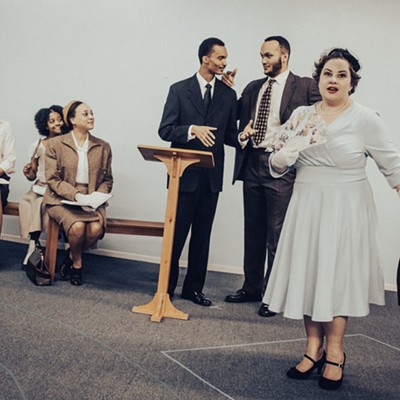Anthropology is a tough job. On the one hand, explorers can "discover" a cultural secret, something no one else has ever seen. Conversely, anthropologists have often been accused of being arrogant, cultish and presumptuous. They make bank on the rituals and traditions of others. Some imperialists bring guns and germs; others bring a clipboard.
Black Pearl Sings, by Frank Higgins, is an inventive take on the ethics of curiosity. Produced by New Horizon Theater, Pearl is about a female researcher, Susannah Mullally, who seeks to record endangered slave songs in the 1930s. Her "subject" is Alberta Pearl Johnson, an African-American widow incarcerated for a violent crime. Susannah's mission is academically pure, but their relationship gets murky fast: Susannah wants original songs, which Pearl has. Pearl wants freedom and her missing daughter, and Susannah might offer both. Susannah wants to prove herself to her male colleagues, but she must exploit Pearl to do so. Everything boils down to supply and demand. Only two characters grace the stage, but the dynamics of their conversation are a microcosm for all of American history.
Like the sharecroppers who carried the American songbook in their vocal cords, Julie Beroes and Jacquea Mae show remarkable talent. Mae is a powerful singer and Beroes a strong actor, though neither claims the other's skills. Such a play could be mired in pageantry, like those roving middle-school troupes that drone about Harriet Tubman. Yet New Horizon Theater has picked a deceptively complex script — and given that it's Black History Month, Pearl couldn't be better timed. The improvised stage at the Kingsley Association is as plucky and intimate as the story itself, and director Linda Haston uses every inch of it to her advantage. For gospel fans, hearing the songs sung so nakedly is worth the price of admission.
And one aspect of Pearl transcends the stage: When Mae unleashes her voice, audiences will likely sing along. I could hear, last Sunday, the hum of harmonies, the slap of heels and a chorus of low "uh-huhs." For African Americans of a certain age and temperament, "Troubles So Hard" is more than a Moby remix. "Kum Ba Yah" is more than campfire sentimentality. And "Reap What You Sow" isn't anthropology, but a part of life.















